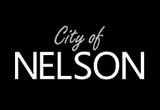Steps to Prepare Your Home and Business for Evacuation
OK, with wildfire seasons starting up again, here is a quick thread of resources for getting informed/getting prepared during emergency situations.
- Evacuations are put into place by local governments, relying on advice of experts (ie B.C. wildfire service). Orders or alerts will go out first through the local government, then through Emergency Info B.C. A compilation of all evacuations orders/alerts: https://emergencyinfobc.gov.bc.ca
- It is crucial that you get signed up for the City of Nelson new alert system. The City of Nelson has
upgraded its Emergency Notification System to issue emergency alerts to Nelson residents and
visitors. Now is the time to download the App and sign up for Nelson Emergency Notifications! The city is
now using the Voyent Alert! System that aligns with communities throughout the Kootenays,
including the RDCK, RDKB and RDEK. Everyone who downloads the App and signs up will receive
emergency notifications, when necessary, on whatever device they choose –You may already be signed up, but if not, go here Nelson Emergency Notification System |
Nelson, BC.If you live in the Regional District and are not registered, please register through this link to
receive notifications to your phone Emergency Alerts | Regional District of Central Kootenay
(rdck.ca). - The language of evacuations: An evacuation ORDER means leave now, don’t go home, don’t start packing, it’s time to go. For this reason, you should be watching out for evacuation ALERTS which means you don’t need to go, but you may have to at a moment’s noticeHere is an important thing about alerts– once they turn into orders, you can’t go back into the evacuated area.So for example– if your home is under evacuation ALERT and you go to town to go shopping and that turns into an ORDER– you can’t go back home. This happens. I’ve met people who were at work of school when an alert changed to an order and they had nothing but the clothes on their back
If you’re under an evacuation ALERT and you leave your home for any reason BRING THE ESSENTIALS WITH YOU. Medication, papers, valuables.
- In terms of what sort of stuff you should have in a go kit in case of an evacuation, lots of resources. Here’s three.Prepared B.C.: https://www2.gov.bc.ca/…/emergency…/preparedbc. If Nelson and Area is ever put on an evacuation alert or think you will be put on evacuation alert, there are some important steps for your business you will want to consider. If you have an evacuation plan, review the plan, and start the implementation process.If you do not have an evacuation plan, here are some things to consider:
- Protect your information – back up electronic files using a USB stick, emailing them to yourself, backing up to an online ‘cloud’ and grabbing your laptop, external hard drive, or computer tower if needed.
- Pack insurance and registration information for all commercial vehicles in your evacuation kit. For more information to go:
http://www.icbc.com/about-icbc/newsroom/Pages/2017-Jul10.aspx - Preparing for an Insurance Claim**** – take pictures and/or a video of your business pointing out key equipment. Do not forget to take a copy of your insurance documents with you.
- Remove any uncertainty as to what staff should do in an emergency. Assign tasks to help staff respond as quickly as possible. Make sure you have their contact information.
- Turn off utilities – electrical and water and remove any fire hazards that may be near the building. If you are evacuated, leave your gas service on. If fire or emergency officials request FortisBC to do so, we will turn off the utility service as a precautionary measure, or if there is an immediate threat to FortisBC infrastructure.
- Empty cash from your cash register and seal in an envelope. Sign the envelope, the cash amount, and the date across the seam. If you go to use any of this cash in your evacuation efforts, be sure to track how much of it you spend and if it is a business-related expense.
- Create a list of emergency phone numbers and key contacts, be sure you have access to this list if you are evacuated. Make sure you have a list of links to emergency information.
- If there is an environmental threat 50 km or further from your place of business, you may still be eligible to register for business interruption insurance. In the case of wildfires, most insurance companies require that the nearest fire be no closer than 25 – 50km from your place of business.
- Contact suppliers about a potential delivery disruption (if applicable) and/or contact customers about a potential disruption in services (if applicable).
For more information read the Prepared BC Small Business Guide.






